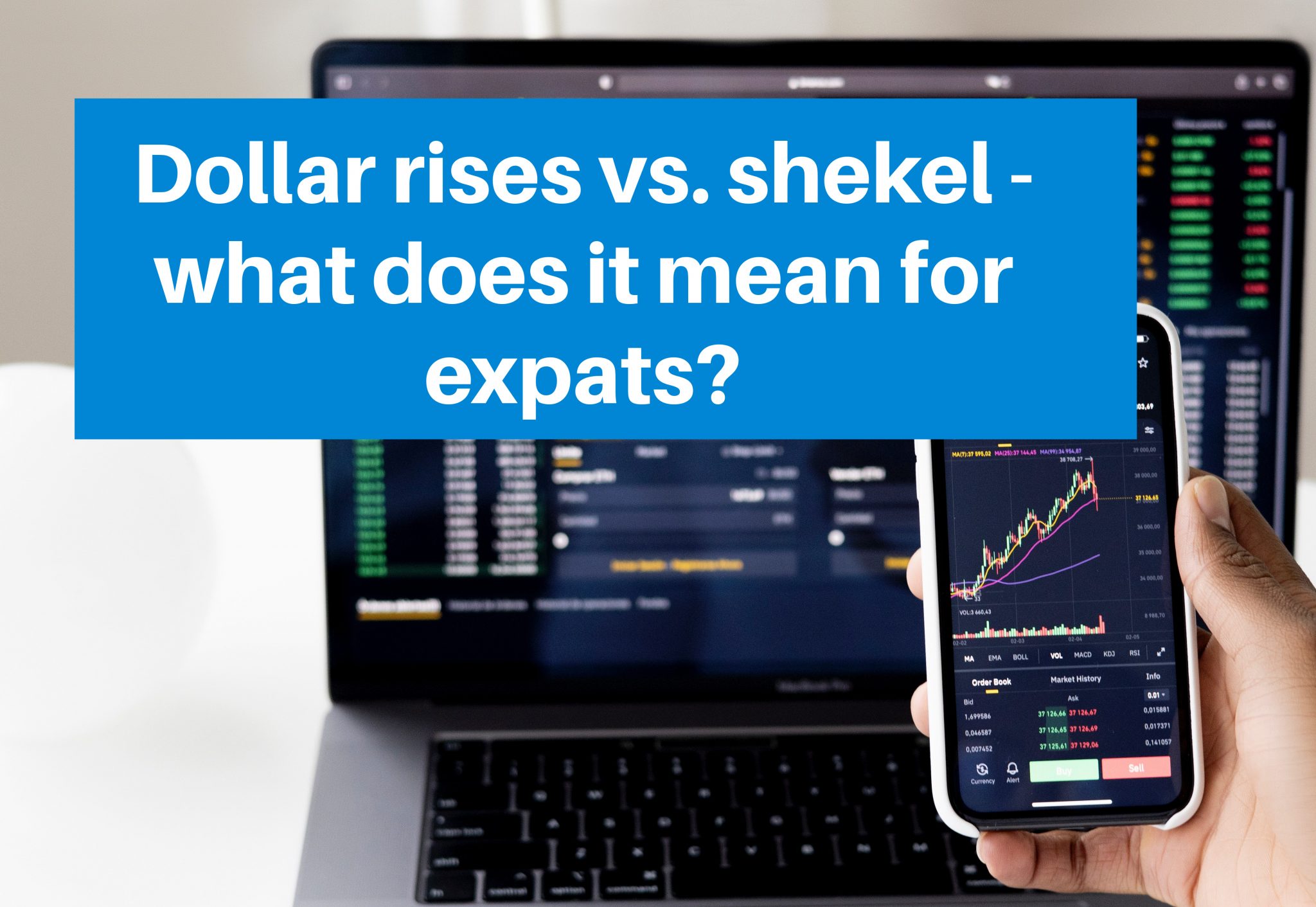

The current market and economic focus has been on higher interest rates, higher inflation and the more recent sell-off in stock and bonds. One thing that has been overlooked is the stronger dollar vs shekel, what it means for those who hold Israeli shekels, many of whom are expats or Americans living abroad.
But first, we’ve written these blogs about moving to and living in Israel which you may enjoy.
What to do when you get kicked out of your US brokerage account
Can one use a US Power of Attorney in Israel, (and vice versa)?
Checklist for moving to Israel
Financial planning for US citizens living abroad
Selling a house in Israel as a US citizen
Why US Expats should look before they leap into a Roth 401k
Compliance with reporting of foreign assets: tips for US expats to avoid stress
What expats need to know about Brokerage Accounts for non-US residents
And now let’s get into the blog!
Dollar vs shekel 2023 – Oct 12th update
Since the start of 2022, the dollar has strengthened versus the Israeli shekel by just under 22% from just under to 3.11 to 3.97 as of today, 12 October 2023. This is good news for people living Israel who earn in dollars, or rely on US social security payments.
In addition, the cost of living adjustment (COLA) for social security payments for 2022 was 5.9%, and for 2023 was 8.7% for a total of 15.1%. So, for example, if you were receiving $1,000 monthly social security payments at the end of 2021, this was 3,110 shekels. Now the adjusted sum of $1,151 will bring you4,569 shekels, an increase of 47%.
COLA will increase an additional 3.2% in January 2024. Assuming the current exchange rate remains, the dollar social security payment will be $1,187, or 4,715 shekels, which is a 51.6% rise since just before 2021 year-end.
What a stronger dollar means for US expats
What is the significance of this for US expats around the world and particularly here in Israel?
Most currencies have weakened versus the dollar. With local interest rates expected to rise, this may be an opportunity to use the extra dollars to reduce shekel liabilities, such as a car loan or mortgage. Floating rate mortgages (or the floating rate component of a mortgage) have increased significantly in Israel from a low of under one percent to over five percent today.
Houses in Israel are priced in shekels. Seeing that you are getting more shekels for your dollar now, you may consider taking advantage of the favorable dollar vs. shekel exchange rate and put more money down. In doing so, you will get more bang for your US buck and reduce the amount of your mortgage loan.
What might it mean for you?
We hope you have enjoyed our article on the dollar vs. shekel and what it may mean for US expats, particularly those living in Israel.
We are expat financial advisors located in Israel and the US, serving expats globally.
If you are moving to Israel or another country and don’t know where to start when it comes to the financial side of things, or hold US or foreign assets and need help figuring out your retirement as an expat, please contact us.
Have questions about retiring in Israel? We’re having a series of webinars in 2024 on this topic. We’re also publishing blogs on this subject.
JOIN the newsletter list here to stay informed.
Norman H. Chait, CFA, Managing Principal, Nardis Advisors LLC, October 13th, 2023.
Sources
Buckner, Jeffrey. 12 October, 2023. Social Security Matters. Social Security Benefits Increase in 2024. https://blog.ssa.gov/social-security-benefits-increase-in-2024/
Google Finance. 12 October 2023. United States Dollar to Israeli new shekel. https://www.google.com/finance/quote/USD-ILS?hl=en
Social Security. Cost of Living Adjustments. https://www.ssa.gov/oact/cola/colaseries.html. Accessed on October 12, 2023.
Disclaimer: Nardis Advisors LLC (“Nardis”) is a Registered Investment Advisory Firm regulated by the U.S Securities and Exchange Commission in accordance and compliance with applicable securities laws and regulations. Nardis does not render or offer to render personalized investment advice through this medium. The information provided herein is for informational purposes only and does not constitute financial, investment or legal advice. Investment advice can only be rendered after delivery of the Firm’s disclosure statement (Form ADV Part 2) and execution of an investment advisory agreement between the client and Nardis.





